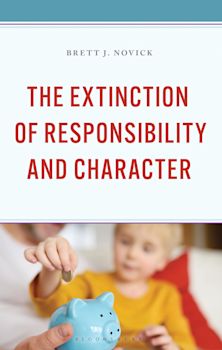Decolonizing Classroom Management
A Critical Examination of the Cultural Assumptions and Norms in Traditional Practices
Decolonizing Classroom Management
A Critical Examination of the Cultural Assumptions and Norms in Traditional Practices
This product is usually dispatched within 3 days
- Delivery and returns info
-
Free US delivery on orders $35 or over
Description
Decolonizing Classroom Management: A Critical Examination of the Cultural Assumptions and Norms in Traditional Practices introduces a framework for decolonizing classroom management which entails critically examining the cultural assumptions and norms embedded in our traditional practices. This book helps educators and teacher educators orient toward liberation through questioning assumptive language, challenging popular classroom management models, and offering promising practices to create positive learning environments. The final section of the book provides promising practices that can guide educators who aim to create thriving learning environments.
Table of Contents
Marie Battiste
Introduction
Flynn Ross and Larissa Malone
1 Theoretical Framework for Decolonizing Classroom Management
Flynn Ross
2 Colonialism, Assimilation, and Dominant Discourse: A Brief History of Classroom Management
Adam Schmitt
SECTION 1: Assumptive Language - Decolonizing Our Thinking
3 Problematizing Best Practices and Educational Research by Ronald Philip Cunningham
4 Under the Hood of a Well-Oiled Machine: Revealing Racism and Ableism within Classroom Management Practices Through Disability Critical Race Theory (DisCrit)
April Coloma Boyce and Maggie R. Beneke
5 Building Belonging in Classroom Learning Communities
Erika McDowell
6 Decolonizing Classroom Relationships
Dina Strasser
7 Centering Humanity, Love, and Connection in Classroom Management
Erica Holyoke
SECTION 2: Challenging Established Classroom Management Models
8 From Interest Convergence in PBIS to Co-Generative Praxis
Matthew Green and Jade Calais
9 Reimagining Classroom Management: A Humanizing Social and Emotional Framework
Brandie Oliver, Brooke Harris Garad, Brian Dinkins, Danielle Madrazo, and Katie Brooks
10 Decolonizing Mindfulness: Centering Liberation and Connection
Patricia Benitez Hemans
11 Challenging the Narrative: How Unexamined Behaviorist Beliefs Can Sabotage Trauma Informed Practices
Jennifer Randhare Ashton, Jessica Sniatecki, and Maria Timberlake
12 Shaking Restorative Justice Free from Retributive Justice
Flynn Ross
SECTION 3: Directions to Consider
13 Fostering Social and Emotional Bonds Through Indigenous Storytelling
Jose Ortiz
14 Dreaming Communities of Care: Radical World-Building with Abolitionist Organizers Toward Students’ Heartwholeness
Riley Drake
15 Creating Harmonious Classroom Communities by Embracing Community Cultural Wealth and Connection Building
Violet Jiménez Sims and Dana Trunquest
16 A Collaborative Approach of Ubuntu: Dismantling Colonial Classroom Management Practices in South African Schools through the Spirit of Ubuntu
Amy Sarah Padaychee and Samatha Kriger
Epilogue: Decolonial Theory to Practice, Toward Shared Anti-Colonial Futures
Rebecca Sockbeson, Fiona Hopper, Bridgid Neptune, and Starr Kelly
Contributors
About the Editors
Product details
| Published | Oct 26 2024 |
|---|---|
| Format | Paperback |
| Edition | 1st |
| Extent | 192 |
| ISBN | 9781475873603 |
| Imprint | Rowman & Littlefield Publishers |
| Illustrations | 3 BW Illustrations, 3 Tables |
| Dimensions | 0 x 0 inches |
| Publisher | Bloomsbury Publishing |
Reviews

ONLINE RESOURCES
Bloomsbury Collections
This book is available on Bloomsbury Collections where your library has access.

































